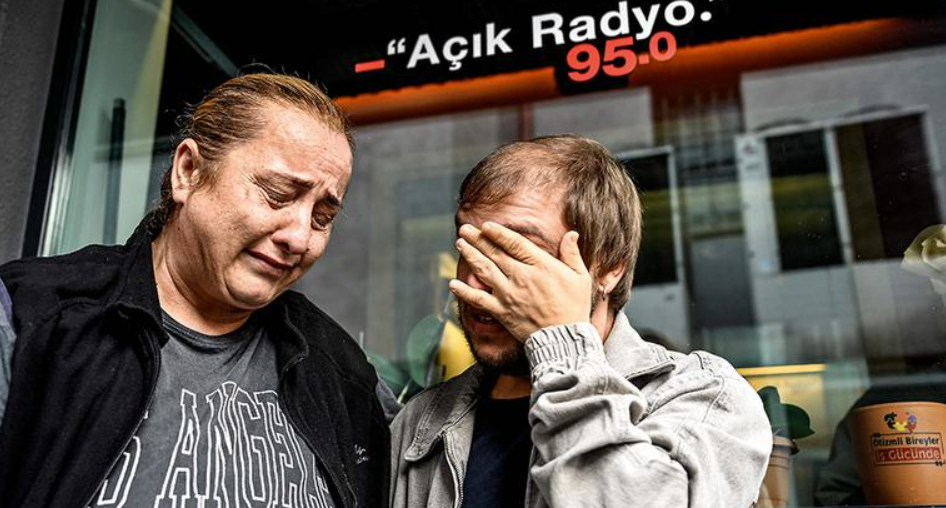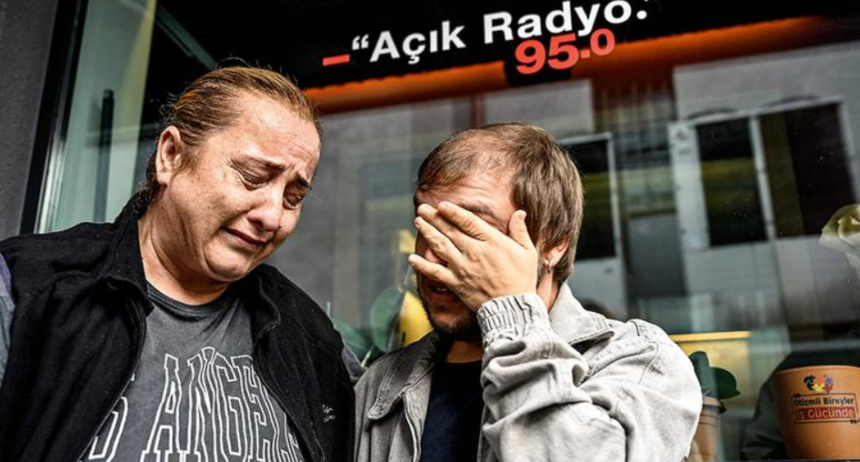In a move that has sparked controversy and debate on the global stage, Türkiye (Turkey) recently shut down a prominent radio station following a heated row over discussions related to the Armenian genocide. The closure has brought forth questions about the country’s freedom of speech, its stance on sensitive historical events, and the broader implications for media freedom and democratic values in the region.
This article will explore the reasons behind the shutdown, delve into the historical context of the Armenian genocide and its significance for Türkiye, examine the potential political and social consequences of this action, and assess the international reactions and broader implications for free speech and media independence.
1. Background of the Armenian Genocide and Türkiye’s Stance
1.1 The Historical Context of the Armenian Genocide
The Armenian genocide refers to the mass killing and deportation of approximately 1.5 million Armenians by the Ottoman Empire during World War I between 1915 and 1917. This event is widely recognized by historians and several countries as one of the first modern genocides. However, it remains a highly contentious and politically sensitive issue in Türkiye.
Successive Turkish governments have vehemently denied that the atrocities committed against Armenians constituted genocide, instead referring to the events as part of the broader chaos of World War I, during which both Armenians and Turks suffered casualties. For Türkiye, acknowledging the genocide would have far-reaching legal and political implications, including the potential for reparations and a reexamination of national history.
1.2 Türkiye’s Stance on the Issue
The Turkish government’s official stance remains firm: it does not recognize the events as genocide, arguing that the deaths of Armenians were part of the wartime tragedies and not a systematic campaign to exterminate a particular ethnic group. The issue is seen as a direct challenge to Turkish national identity, and discussions about the genocide are met with strong reactions from the state and nationalist groups.
Over the years, Türkiye has pressured other nations to refrain from officially recognizing the Armenian genocide. When countries such as France, Germany, and the United States have recognized the genocide, Türkiye has responded with diplomatic protests, reflecting the sensitivity of the issue in the country’s political discourse.
2. The Radio Station Shutdown: A Catalyst for Controversy
2.1 The Radio Station in Question
The radio station that was recently shut down in Türkiye had gained popularity for its wide range of programming, including political discussions, cultural content, and social commentary. Its open forum for debate and the willingness to tackle sensitive issues had made it a target for both praise and criticism.
The specific row that led to its closure reportedly involved a broadcast in which guests and callers openly discussed the Armenian genocide, questioning the Turkish government’s official stance on the matter. This sparked outrage among nationalist groups and government officials, who viewed the discussion as an attack on the country’s national integrity.
2.2 The Decision to Shut Down the Station
Following the controversial broadcast, Turkish authorities moved swiftly to shut down the radio station, citing violations of the country’s broadcasting laws and accusing the station of spreading misinformation and inciting hatred. The decision was defended by government officials as necessary to maintain social harmony and protect national unity.
However, critics argue that the closure represents a broader crackdown on freedom of expression and media independence in Türkiye. They claim that the station’s shutdown is part of an ongoing pattern of silencing dissenting voices, particularly those who challenge the government’s narrative on sensitive issues like the Armenian genocide.
3. Implications for Free Speech and Media Independence in Türkiye
3.1 Erosion of Free Speech
The shutdown of the radio station has raised alarms among advocates for free speech, both within Türkiye and internationally. Many view this action as another step in the government’s efforts to control the media and limit public discourse on controversial topics. Over the past decade, Türkiye has witnessed increasing restrictions on the press, with journalists facing harassment, legal action, and imprisonment for expressing dissenting views.
The Armenian genocide, in particular, is a topic that remains off-limits for open debate in most Turkish media outlets. Discussing the genocide or questioning the official narrative can lead to accusations of “insulting Turkishness,” a criminal offense under Article 301 of the Turkish Penal Code. The radio station’s willingness to engage in such discussions likely put it at odds with the government’s stringent media policies.
3.2 Media Freedom Under Threat
Türkiye’s media landscape has long been under scrutiny for its lack of independence. According to Reporters Without Borders, the country ranks poorly in the World Press Freedom Index, with increasing government control over media outlets. Independent journalism has become more difficult, with many media organizations facing shutdowns, censorship, and government interference.
The closure of the radio station is seen by many as a continuation of this trend. It highlights the challenges faced by journalists and media organizations that seek to provide a platform for open discussion on politically sensitive issues. Critics argue that the move to shut down the station is part of a broader effort to suppress any narrative that challenges the government’s position on historical and contemporary matters.
4. Political and Social Consequences
4.1 Domestic Reactions
Within Türkiye, reactions to the shutdown have been mixed. Supporters of the government and nationalist groups have applauded the decision, arguing that the radio station crossed a line by engaging in discussions that undermine national unity. They view the move as necessary to protect the country’s interests and prevent the spread of what they see as harmful narratives.
On the other hand, opposition groups, human rights organizations, and media watchdogs have condemned the decision as an attack on free speech. They argue that open discussion about historical events, even those as sensitive as the Armenian genocide, is essential for a healthy democracy. The radio station’s closure is seen as a sign of the shrinking space for dissent in Türkiye, where the government has increasingly used its power to stifle critical voices.
4.2 International Reactions
The international community has also expressed concern over the shutdown. Media freedom organizations, such as the Committee to Protect Journalists (CPJ) and Reporters Without Borders (RSF), have called on the Turkish government to reverse its decision and respect the principles of free speech and media independence.
Western countries that have recognized the Armenian genocide, such as the United States and France, are likely to view the closure as part of a broader pattern of authoritarianism in Türkiye. Relations between Türkiye and these countries have already been strained over issues related to human rights and democracy, and this latest incident could further deepen the rift.
At the same time, Türkiye’s actions may find support among other authoritarian regimes that prioritize national unity and social stability over media freedom. The case of the radio station shutdown could serve as a cautionary tale for other countries where discussions about historical atrocities remain politically sensitive. 
5. The Broader Debate: National Integrity vs. Free Speech
5.1 Balancing National Unity and Free Expression
The shutdown of the radio station brings into focus the tension between national unity and free speech, a dilemma faced by many countries grappling with sensitive historical issues. Türkiye’s government argues that allowing open debate about the Armenian genocide undermines the country’s unity and gives credence to foreign narratives that seek to weaken the nation.
However, proponents of free speech argue that open debate and critical inquiry are essential for a democratic society. They contend that silencing discussions about historical events, even painful ones, only serves to deepen divisions and prevent reconciliation. The closure of the radio station is seen as a move that prioritizes short-term stability over long-term democratic values.
5.2 The Role of Media in Democratic Societies
The role of the media in democratic societies is to provide a platform for diverse viewpoints and foster informed public debate. By shutting down a media outlet for discussing controversial topics, the Turkish government is sending a message that certain narratives are off-limits, effectively stifling public discourse.
The question remains: Can a country truly achieve national unity if it suppresses open discussion about its history? Critics argue that a healthy democracy should allow for the airing of diverse perspectives, even if those perspectives challenge the official narrative. In the case of the Armenian genocide, this means allowing Turkish citizens to engage with their country’s past, however painful it may be.
6. Conclusion: A Step Back for Free Speech in Türkiye?
The shutdown of the radio station in Türkiye after a row over the Armenian genocide is a stark reminder of the challenges facing free speech and media independence in the country. While the government defends its actions as necessary to maintain social harmony and national integrity, critics argue that this move represents a further erosion of democratic values.
As Türkiye continues to grapple with its past, the closure of media outlets that challenge the official narrative raises important questions about the future of free speech in the country. Will Türkiye continue to suppress dissenting voices in the name of national unity, or will it embrace a more open and inclusive approach to its history and future?
The world will be watching closely to see how these tensions play out in the coming months and years, as the struggle between free expression and state control continues in Türkiye’s ever-evolving political landscape.





